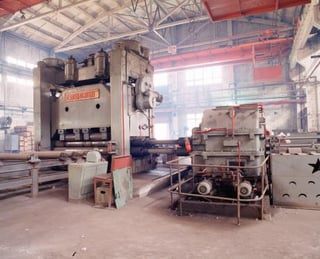
A company appraisal is a company appraisal, right? Wrong. Different industries often value different aspects of a business based on what's important in that sector. Oil and gas depends on market prices. Construction depends on demand. Repair services are often driven on reputation and goodwill of the community. So what's different when you're valuing a manufacturing company? We thought you'd never ask.
What's different when valuing a manufacturing company
- Current market conditions. If you're manufacturing oil rigs and oil is selling for $50 per barrel, you're not going to sell a lot of rigs. This can impact the value of your manufacturing company, unless you have options to diversify into other markets. A good business appraiser takes note of market conditions and may be able to offer suggestions to improve your standing in a weak market.
- Reputation for innovation within the company. Is your company a leader in fresh new features or adding new interfaces that hadn't been considered before? This kind of reputation can improve your company's overall value. Is this innovation supported by just a few individuals in your company? A business valuation specialist can tell you where your business' strengths and weaknesses are, allowing you to secure areas needing improvement and grow areas that are already strong.
- Uniqueness of products manufactured. Are you the only manufacturer of your products, such as a range of after-market off-road truck equipment? Or are you one of a few dozen manufacturers producing plastic clothes hangers? Having a unique product can increase the value of your business, while manufacturing a commonly produced product can lower your overall value.
- Brand value. Is your company known as a leader in your industry? If you're well known, your brand will go a long way towards creating interest in new products. If you have a reputation for excellence, that creates a certain level of expectation that your products are worth an additional amount, driving your company's value up.
- Specialization. If your industry requires a certain level of precision in manufacturing and you have the equipment and expertise to manufacture products to that level of precision, you can often charge a premium for your products. That premium is reflected in your company's overall appraisal value.
- Level of market saturation. How much room for growth is there in your market? Are there alternative markets that haven't been leveraged yet? If your market is already completely saturated with little prospect for growth, you may see a negative impact on your business' value. If you can diversify to create new features or options to expand the market again or make it feasible for segments of that market that have been previously unexplored to buy in, your business value can increase.
As you can see, when it comes to valuing a manufacturing company, many different aspects come into play that can directly impact your business' value in a very different way than companies in other industries may be impacted. For this reason, it's important to work with a certified business valuation specialist with experience in your industry to ensure you're getting the most accurate possible appraisal report.